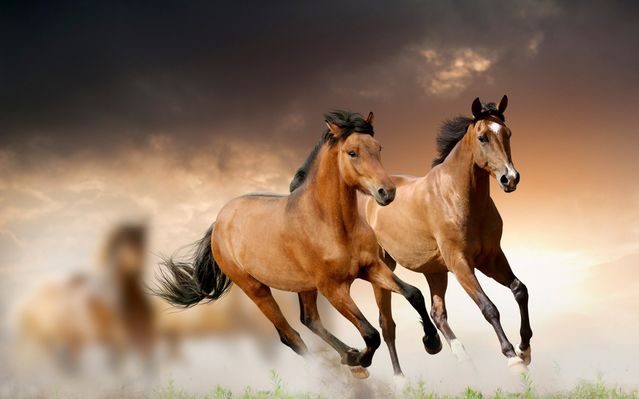
by Ada Porat | Jul 24, 2024 | Empowering changes, Gratitude, Healthy boundaries, Life skills, Personal growth, Resilience
Photo credit: Waldoon, Adobe Stock
Living your best life is all about making the most with what you have right now. Clearing the cobwebs from old, limiting thinking can be a great way for you to shine. Here are ten truths to challenge limiting beliefs and empower you so you can make the most of your life now:
1.Nobody knows why anybody does anything – and it doesn’t matter.
You don’t have to figure out why your neighbor ignores you or what happened to someone as a child to make her so mean. We humans are products of both our nature and our nurture – most of the time, we do things simply because we can. Trying to figure out why keeps us stuck in the past, so stop the over-analysis. Let it go, be here now and don’t take things personally!
2. Nobody owes you a thing.
Life is a precious gift, not an entitlement. You could never repay the time, love and support it took to get where you are today: loved ones, teachers and peers believed in you, challenged you and pushed you to become who you are. So, the real question is not what you can get from life, but what you are giving back in return.
3. You’ll be balanced when you’re dead…
Not a moment sooner! We chase balance like the Holy Grail, but it is the very cyclical nature of change that adds momentum to life. If you’re passionate about something, you may well want more of it in your life, so go for it. Your kids won’t turn into losers if you miss a few softball practices, so ease up on yourself. Learn to surf the waves of change with inner equilibrium instead.
4. Multi-tasking is an oxymoron.
Don’t be intimidated by people who do five things at once. Studies show that we don’t actually do more than one thing at a time – we simply switch our attention rapidly between projects, and we compromise on the quality of our output. Would you feel comfortable with a surgeon who juggles performing your surgery while texting and making phone calls? Choose to be masterfully present with one thing at a time instead of trying to be a jack of all trades, and you will ultimately be more effective.
5. You don’t deserve anything you have.
If in doubt, go back to #2. Entitlement is really unattractive. No matter how hard you’ve worked or planned, it is delusional to think that you are in complete control of the outcomes. God, circumstance, the actions of others, and timing all play big parts in your success, so skip the entitlement and practice gratitude for what life brings.
6. You’re ordinary.
Relax, it’s a compliment! Ordinary people are reliable, industrious and consistent. Superstars often lose their inner freedom to the demands of fame, especially when their egos take over. Who would you rather call at 2 AM when your car breaks down – Tony Robbins or your brother-in-law?
7. You’re not a victim; you’re a volunteer.
The old saying that nobody can take advantage of you without your permission is true. We teach people how to treat us. If you don’t want something to happen anymore, don’t set it up in the first place. You change your life by changing yourself first.
8. You’re right. Life isn’t fair.
Life is more random that we could have ever imagined! It is also interesting and instructive when you keep an open mind, for it is from the seemingly random dynamics of change, that miracles emerge and possibilities show up.
9. There is no perfect time.
There is no place where time stands still and standards are lowered to keep you in your comfort zone. At any point in time there are only three things present: you, and life, and this very moment. What you make of this present moment, is up to you. What are you doing with your life right now?
10. Gratitude is next to Godliness.
Cleanliness is way down the list! I have yet to encounter someone at the end of life regretting the dust on their furniture or the stains on their windows… but many regret the opportunities for gratitude they passed up. Eckhart Tolle puts it this way: “Acknowledging the good that you already have in your life is the foundation for all abundance.” Look for things you can be grateful for and you will be amazed at how many more blessings show up.
About The Author:
©Copyright Ada Porat. For more information, visit https://adaporat.com. This article may be freely distributed in whole or in part, provided there is no charge for it and this notice is attached.
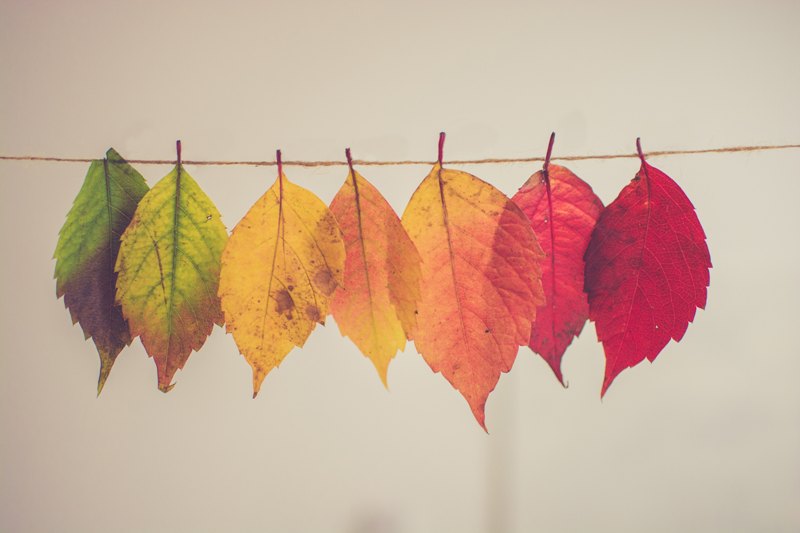
by Ada Porat | Nov 22, 2022 | Gratitude, Happiness, Personal growth
Photo Credit: Chris Lawson, Unsplash
What would life look like if we experienced more gratitude? Imagine your satisfaction when someone expresses gratitude for your efforts; or your contentment when feeling happy about life, right in this moment. We can all have more of that because growing gratitude is a valuable life skill we can learn!
The simple attitude of gratitude is one of the most powerful creative energies we can work with. It transforms our consciousness because energy flows to whatever we focus on, and makes it grow.
Gratitude also increases happiness. When we express genuine appreciation for the goodness we already enjoy each day, we cultivate happiness in our lives.
Perhaps you have not yet lost the twenty pounds you want to, but you have learned to make better food choices. Or you have not yet found the love of your life, but you have been blessed with loving relatives and friends.
It’s a simple yet powerful principle: You can develop more of what you desire in life by noticing what you DO have already and growing an attitude of gratitude for that. You have the power to create more of what you love by expressing genuine appreciation for the good things you already have.
Expressing gratitude is a learned skill. It is done not in a superficial or schmaltzy way, but through genuinely heartfelt, eyeball-to-eyeball or heart-to-heart connection. It involves appreciation delivered with real meaning rather than some perfunctory mumblings or syrupy platitudes.
Just think of all the meaningful things that you have already enjoyed today: the smell of coffee that got you going, a warm shower, soft towels, a selection of clean clothes in your closet, sunshine warming your face, tantalizing aromas all around, the ability to walk and talk… there’s so much to be grateful for!
Once the habit of growing and showing attitude takes hold, you’ll start noticing more and more of life’s blessings around you. Gratitude expands our hearts to notice more of what we already have appreciation for.
Imagine how relationships would be enhanced if you used the same approach to express appreciation for the people in your life!
Take a few moments to consider the relationships you’re grateful for. Reflect on the qualities you appreciate in each of your relatives and friends: the smile on a child’s face, the hug of a loved one, the spontaneous playfulness of a friend… and even their individual ways of craziness! We can find something to be grateful for in every person or situation.
I had an eccentric great-aunt who had the knack for making keen observations about others at the most inappropriate times. I used to blush in embarrassment at her unflinching directness, yet when she was no longer able to attend family gatherings, her special brand of candor was sorely missed. Only then did I realize how her unique brand of eccentricity enriched our lives.
Perhaps there are a few people with varying degrees of eccentricity populating your life as well. They also have a role to fulfill — even if it is to stretch your tolerance level, teach patience or give you an opportunity to forgive! And yes, they offer you an opportunity to grow more gratitude.
Expressing gratitude is a priceless gift we can offer ourselves and others. Now is a perfect time to express your gratitude to people who have touched your life. Let them know what you love about them and how it makes you feel. You’ll add meaning to their lives while strengthening your relationships.
Growing gratitude is indeed a valuable life skill we can learn to enhance our quality of life.
About The Author:
©Copyright Ada Porat. For more information, visit https://adaporat.com. This article may be freely distributed in whole or in part, provided there is no charge for it and this notice is attached.
by Ada Porat | May 23, 2022 | Conscious living, Gratitude, Life Balance, Mindfulness, Personal growth
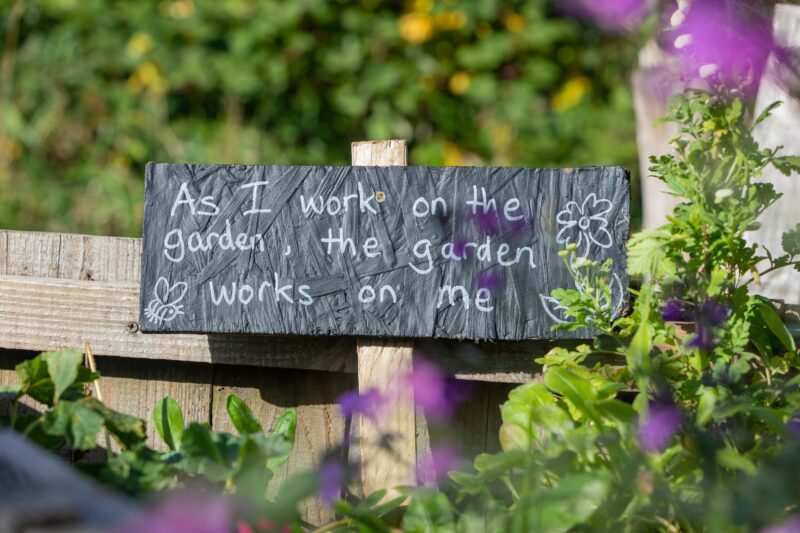 Photo Credit: Mike Erskine, Unsplash
Photo Credit: Mike Erskine, Unsplash
Sometimes when I garden, I think of all the life lessons gardening has taught me and my heart overflows with joy. Perhaps I should write one of those books titled: “Everything I need to know about life, I learned in my garden!”
Jokes aside, gardening for me is a sacred conversation with all of life. It intimately connects me with the earth, nature, creatures of all shapes and sizes, and life beyond. It brings me back to my happy space as a co-creator and nurturer.
The act of gardening brings us fully present to ourselves, each moment, and the Presence of the Creator permeating everything around us. The rich diversity of the microcosm we call gardening, is simply a sliver of the abundant cosmos we get to live in and explore. And as we seek to establish balance and participation in a garden, we set in motion a core of harmony that ripples out to bless all sentient life with beauty, sustenance, and vitality.
Gardening gathers us home to Mother Nature and all the lessons she has to share with us. As we tend the diverse aspects of a garden, we also commune with Mother Nature, and in turn she blesses us with nutritious bounty and beauty.
As in all of life, gardens enjoy seasons of growth like spring and loss like fall; there are times of giving as the blooms of summer, and seasons of rest as the seed beneath the snow. All the seasons are ours to experience.
How we experience each changing season, is up to each of us: we alone choose our responses to life, our ability to begin again and grow even after we’ve been pruned back hard.
Gardens are not just happenings. They’re expressions of the gardener’s presence. The more wonderful the garden, the more skilled the gardener. Together, the symbiotic relationship of garden and gardener offers us clear reminders of the principles we need to tend through the seasons of life.
As seasons revolve, periods of death and loss are followed by the rebirth of new life and vitality. Each plant grows, blooms and bears fruit, and then declines as a reminder of the sacred cycle of life and death. When the season of bounty is done, spent plants are recycled by composting them, and room is created for new shoots to emerge from the bountiful earth.
Like all of creation, gardening starts with a vision. It also requires effort and persistence to translate the vision into reality. Choices need to be made: our inner garden grows best when we plant seeds of faith, hope, love, compassion, forgiveness and trust. And then, we need to faithfully tend those seeds as they grow into their full potential.
To effectively cultivate our inner garden, we must care deeply for this life that’s ours and nurture it. We need to identify and remove weeds from our lives so they will not choke out the beauty of the life we’re cultivating. Likewise, we need to differentiate between what’s good and what’s unnecessary, so we can prune back behaviors and actions that interfere with our inner growth and harmony. Pruning, though painful, creates space for what we wish to bring forth.
Gardens are protected by healthy boundaries. When boundaries are defined, the tender plants are protected from predators while beneficial insects are invited to perform their service of pollination.
Gardening is inherently responsive and proactive. It teaches us the importance of spotting pesky invaders or the start of disease right away. Ignoring a few warning signs today can quickly escalate to a disastrous outcome or total crop loss. We need to remain vigilant, eliminate negative thoughts and maintain good emotional hygiene for a balanced life.
And when harm has been done, gardening also teaches us to forgive trespassers – both the intruders who hurt and damage what’s been painstakingly cultivated, and forgiving ourselves when we make mistakes or fail to live up to our own ideals.
Finally, gardening teaches us about the value of community. Plants are drawn to companions that comprise a supportive community. Tomatoes grow well alongside basil or peppers, but don’t thrive next to cabbage or broccoli. This does not make either plant type bad; it merely indicates a harmonic symbiosis which, when honored, results in more optimal outcomes. Likewise, we need the enrichment and support of a harmonious community to reach our full potential.
There’s no garden as prolific as the one that love grew, whether in nature or in our hearts. Love is at the core of all abundance, goodness and bounty. Author Daphne Rose Kingma expressed it this way:
“For it is in loving, as well as in being loved, that we become most truly ourselves. No matter what we do, say, accomplish, or become, it is our capacity to love that ultimately defines us. In the end, nothing we do or say in this lifetime will matter as much as the way we have loved one another.”
Even though the world is full of suffering, it’s also full of empowerment and opportunity. When we stop to reflect on the inner garden we’re tending – our inner being – we see this.
And so, we tend the verdant garden of our hearts so we can transition from fear to faith; from lack to abundance, and from defensiveness to blessing. It takes courage to step away from a busy schedule and to sit, tending our heart and soul. Yet all masters knew how important that is: even Gandhi took one day a week to sit in silence, tending the garden of his heart so he could be the change he sought in the world.
It is in quietude and contemplation that we recognize the stillness of the Creator Presence and our connection to all. That awareness can foster in us compassion for the woundedness of the world, so we commit to the awakening and care of our world.
Centuries ago, the Buddha taught: “To live in joy and love even among those who hate; to live in joy and health, even among the afflicted; to live in joy and peace, even among the troubled; quiet your mind and tend the heart, and free yourself from fears and confusion and attachment, and know the sweet joy of living in the Way.”
What is your bountiful gift to the world that only you can bring? Listen closely, push beyond discomfort to cultivate your seeds of potential, and grow them with love and joy!
About The Author:
©Copyright Ada Porat. For more information, visit http://adaporat.com. This article may be freely distributed in whole or in part, provided there is no charge for it and this notice is attached.
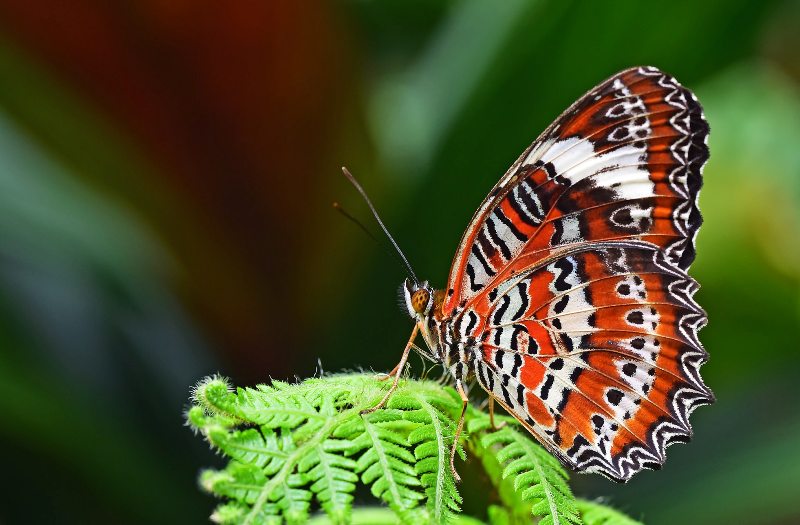
by Ada Porat | Jun 21, 2021 | Conscious living, Environment, Gratitude, Mindfulness
Photo Credit: David Clode, Unsplash
Sometimes life calls us to slow down a bit and step aside, to quiet the endless chatter of our minds and the demands of our outer world, and to become still.
We are invited to notice the Divine nature of everything around us. In that stillness, we come to acknowledge the beauty of song and the vulnerability of our wounds, the magic of the seeming insignificant and the terror of the unknown. We find grace to tend our needs and return to our center.
And once we have been renewed, we bring the message back to others who, in turn, can shake themselves awake and look at life in new ways – as if for the very first time.
It does not matter what brought you here, or which path stripped away your protective layers to leave you trembling before the awe of life. You are here now, and so I would like to share with you a vision of things that touch our hearts.
I want to gift you a glimpse of the intricate and miraculous web of life and watch the recognition light up your eyes. I want to share with you the grace of a few small things and stir the deep memory of endless opportunities to love despite the vastness of an incomprehensible universe.
Today, I awoke to the symphony of birds whose names I’ll never know and marveled at the incredible complexity of their harmonies as they exuberantly welcomed the arrival of a bright new day. It spoke to me of joy.
In the street, parents walked their children to the park, small hands swallowed up by theirs, smiling as they inclined their heads to hear stories bubbling from those rosy lips and downy cheeks, excited at the possibilities of a new day, and it spoke to me of hope.
I remembered the way the red hen hunched down and spread her wings so her baby chicks could find shelter from the rain as they huddled beneath her breast, and I felt love.
After the rain, the fern at the base of the stairs finally succeeded in breaking through the stony cracks to unfurl its tiny fronds to warm sunlight, and it reminds me of courage.
The way young people lean eagerly, expectantly into their future even when they don’t know what it holds, and it speaks of confidence.
And the way the old dog stretches out to let the morning sun warm its stiff joints, surrendering to each present moment.
And the way the car hesitates for a moment before the gear engages, reminding me of my own doubts.
And the way the grackles peck at the oranges in the trees, carefully grooming themselves with the oils and then announcing their gleaming handiwork with loud caws before flying off to what they do next. And I am reminded that self-nurture precedes all service.
And the way a sentence can leap right off the page to pierce your heart with its honesty and truth, so you need to stop for a minute to experience the awe and beauty of it.
And the way you sometimes glimpse someone in a vulnerable moment and see right inside them to the soul that’s there, and your heart wells with compassion and love for its innocence.
Yes, I know there is a lot of pain and suffering in our world. Good things end and bad things linger on, we fail and struggle and get hurt, hammered by loss and accident and tragedy until, someday, we are freed to slip away into the darkness beyond it all.
But I also know we carry awesome potential, and our experiences can make us kinder and more loving if we let them. I know we can choose how we respond to life: either dismissing dissonance as nonsense and huddling behind walls or embracing things that touch our hearts, even when we do not understand their full meaning.
Life speaks to us in a myriad of ways that cannot be measured or understood unless we listen carefully, and then are able to accept the messages of love, courage and hope. When we honor the grace of small things, life can be a beautiful dialogue with our souls.
About the Author
©Copyright Ada Porat. For more information, visit https://adaporat.com. This article may be freely distributed in whole or in part, provided there is no charge for it and this notice is attached.
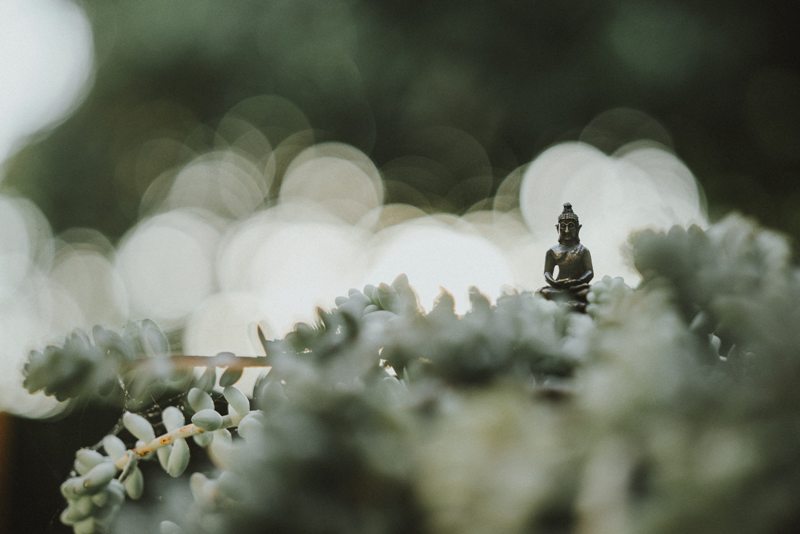
by Ada Porat | Jun 25, 2020 | Conscious living, Cope with change, Empowering changes, Gratitude, Love, Personal growth, Self-awareness, Spirituality
We are gifted with life in the physical body and world to learn how to truly love. Our conscious participation in this process as awakened souls allows us to fulfil our highest purpose. And from the conflict all around, it’s clear that we’re not doing very well with mastering this lesson!
Life is very simple, really, but because most of us live from the mind and not the heart, we’ve developed the false belief that life is complicated and our ultimate purpose too complex or hard to find.
There is a better way.
It is time to remember why we came here in the first place. We did not come to earthly life to divide and conquer, but to find our way back to Oneness through love. All the great wisdom traditions tell us we are born from love, though we tend to forget that and operate on autopilot much of the time.
Learning to truly love requires us to develop gratitude and forgiveness. We cannot truly love with judgment and hatred in our hearts; and we cannot enjoy the beauty of life when we are driven by insatiable greed.
Ram Dass said, “If I’m an ego, I am judging everything as it relates to my own survival… souls love. That’s what souls do. Egos don’t, but souls do.”
From the soul perspective, a life well lived is not measured by the amount of power, money or status an individual can amass at any cost – a well-lived life is measured by how well the soul learned to embrace gratitude and forgiveness as expressions of Divine love.
We are intrinsic parts of nature and inexorably interconnected with all other people. Anything detrimental we do to the planet or to others, we ultimately inflict on ourselves. And so, the true wakeup call sounding for all of us is to see just how far we have drifted from the moorings of love so that we can course-correct.
Only when we acknowledge our part in the game of separation, judgment and fear, can we begin to heal the wounds of separation consciousness. There is no transformative benefit in reacting to the voices clamoring for separation, division and conflict, because whatever we react to, we entangle with energetically.
Instead, this is the time all awakened souls are asked to first go within and realign with Higher consciousness. From that alignment with the Source of love, unity and truth, our presence becomes transformative as we interact with fellow souls. We heal when we align with our Source – that truth, love and unity is what sets us free.
Our realignment with Source enables us to approach life from a place of Divine love rather than from survival anxiety. It also enables us to live with greater interdependence. As we increase our awareness of existing within an intelligent and benevolent universe, we experience greater intimacy and connection with all forms of life, including ourselves.
Will this guarantee a life of safety and comfort?
No – that is not why we came here. We embarked on this life for our personal soul growth, not to isolate ourselves from the lessons of this earthly school and our fellow soul companions.
It is true that life can be full of suffering. We all get physically sick and our bodies sometimes ache.
Just as in school, we may not enjoy all the lessons that come our way. There are abundant opportunities to feel let down by others or frustrated with ourselves. And the world at large—now there’s a circus! We are confronted with all sorts of painful, alarming situations—abuse, starvation, poverty, war, lack, uncertainty, corporate depravity. On any given day we might get into an accident or learn that someone we love has died.
Over eons of time, we’ve developed many coping strategies to survive, and not all of them are helpful. Coping strategies allow us to roll out of bed each morning and face the world. And while some of them are useful, we may overuse or over-identify with these survival strategies. When we do so, we become cut off from love, separated from trusting life and our Source.
Separation consciousness is rooted in the belief that the external world is separate. The ego believes that it resides “in here” and everything else is “out there.” By locking in this duality-based viewpoint, we cannot see our role in co- creating all our experiences. We become limited, fear-based and paranoid.
This duality-based view of life is an obstacle to the emergence of our Divine nature. To heal that, we need to return to love. A Course in Miracles states, “Your task is not to seek for love, but merely to seek and find all the barriers within yourself that you have built against it.”
Science tells us that we reside in a unified field of energy called the universe. Every major religion, spiritual path, and wisdom tradition has some version of Oneness at its core.
From an energy perspective, we are all interconnected like billions of mirrors endlessly reflecting and stimulating one another’s growth. The world is an enormous reflection of our psyche. Our job is to attend to the source of the projections, not the mirrors. We are to heal the roots of separation, not to slap labels on others that keep us separate.
Anais Nin said, “We see things not as they are. We see things as we are.” When we stand in judgment over something, it can be very enlightening to ask ourselves what it is we do not wish to see in ourselves, for it is that inner blindness that makes us project our self-judgment out into the world instead.
Spiritual awakening frees us from the blindness of unconscious living. It allows us to transcend ego as our primary identity. Awakening empowers us to bridge the separation we formed with life beyond ourselves. This ongoing process calls us to heal and reunite the wounds of separation consciousness, both in ourselves and with others. And we do that profound work with the tools of forgiveness, gratitude and love.
Persian mystical poet Rumi wrote, “Everyone sees the unseen in proportion to the clarity of their heart.” Clarity is what remains within when we replace our ego distortions with growing awareness. This shift in consciousness enables us to recognize the spiritual lessons presented in our experiences.
To the awakened soul, everything is a benevolent lesson—despite the ego’s endless stories that tell us otherwise. Stress, frustration or “negative” emotion is just an indication of something that needs attention, an invitation to expand our true awareness and heal the underlying separation.
We expand our conscious awareness through the practice of forgiveness – it asks us to surrender our attachment to the ego’s need to be right, to feel validated or empowered.
The ego wants to win, whereas the soul wants to grow.
When we let go of our attachment to the ego’s power addiction, we forgive. And when we forgive, we discover gratitude for what is. We’re able to see the beauty of what is, instead of blindly striving for what is not.
Situations the ego may construe as failure or loss may now be seen as opportunities to learn rich and necessary spiritual lessons. Even trying situations contain buried gifts. The imperfections of the world are perfect for our purpose of learning how to love in a healing way.
Instead of asking “Why this? Why me? Why now?” which implies that we do not trust the implicate order of life, we can start to ask instead, “How is this helpful on my journey? What can I learn from it? How do I need to change to return to my inherent state of peace?”
In true awakening, the presence of spiritual love within calls on us to have compassion for the struggles of others and to forgive them for their limitations. When we do that, we start to heal the wounds of separation. We don’t love the other because they are black, or white, Muslim or Jew, rich or poor – we love them because they are part of our family of humankind.
All our fellow humans deserve our love, forgiveness, respect and support because that is how we heal separation consciousness – not by sticking labels on them and then arguing about the meaning of the labels. And certainly not by destroying the fragile physical vessel of the soul.
Humans evolve when they can see and grasp a better way; a better vision of themselves and of the world. One of the greatest gifts we can offer others, is to recognize their true potential as souls and to mirror that for them so they can evolve toward that potential.
We heal anger with love, hateful acts with forgiveness, and disrespect with respect.
This is the real work of awakening. It is the work of healing the wounds inflicted by egos operating on greed and inequality.
If you are reading this, you are one of the awakened souls on the planet who are being called to be part of this monumental task. The time is now. Together, we can do this!
About the Author
©Copyright Ada Porat. For more information, visit https://adaporat.com. This article may be freely distributed in whole or in part, provided there is no charge for it and this notice is attached.

by Ada Porat | Dec 30, 2019 | Conscious living, Gratitude, Happiness, Joy, Mindfulness, Personal growth, Spirituality
At times, it can feel as if the demands of physical life keep us so busy struggling to survive that there is no time for the mystic pursuits of spirituality. And yet, there is a way to live as a mystic in the mainstream of life, dancing gracefully between these seemingly opposite worlds.
We are not just physical bodies rushing through life; we are timeless spiritual beings experiencing life in the physical realm. And to thrive, we need to learn how to operate in both worlds: the world of the unseen Presence and the world of manifest physicality. We need to learn how to coexist in the realm of the timeless Now as well as the realm of linear time. Together, these realms offer us boundless gifts and opportunities for personal growth.
Shamans refer to this interface between realms as walking between the worlds: learning to live in both the realms of the timeless invisible and the manifest world. Walking between the world implies action, for it is not an abstract intellectual process. We come to understand life by experimenting and experiencing, not just by passive intellectual pursuit.
How do we become better at this process of living as mystics in the mainstream of life? Here are three guidelines to consider:
- Review and integrate the learning from your experiences so far.
Making peace with the past is important because it can empower and orient us in the present. A periodic review of our path offers the chance to release what is no longer appropriate in order to make space for the values and actions that can empower our future.
This process requires us to be ruthlessly honest and vigilant with ourselves. Where have we excelled? Where can we improve?
One of the subtle pitfalls on the spiritual journey that requires vigilance to purge from our lives is entitlement. You know, that sense of false righteousness that demands that Spirit bestows on us the things we desire, because we think we deserve them. We don’t even need to be followers of the prosperity gospel to fall for this trap, because it appeals to the ego in all of us.
Entitlement is an egoic illusion! Life gives us what we need, not necessarily what we want.
Spirit knows exactly what we need for our learning and growth. Entitlement, on the other hand, operates from the false premise that we know better than Spirit what we need and that we cannot trust in the loving care of a benevolent Creator. It is driven by fear and arrogance instead of trust and faith.
Because entitlement is driven by ego, it insatiable and cannot lead to long-term happiness. The key to happiness is not entitlement, but gratitude.
We are not our neighbors; therefore, the things they need for their growth are not the same as what we need. To fully trust, we need to let go of what we want, and to instead learn to embrace what we are given with gratitude.
2. Clarify and prioritize what is most important to your life right now.
Your unique life, in this very moment, is all you have. What is it you desire to accomplish with this precious gift? What is the legacy you wish to leave behind after you have passed from here?
So often, I hear people saying that they want to have more joy and happiness in their lives. They think that once they have more joy, they will be more grateful.
In reality, it works the other way around. The root of joy is gratitude: It is not joy that makes us grateful; it is gratitude that makes us joyful!
We have thousands of opportunities every day to be grateful: enjoying good weather, having a good night’s rest, being able to walk and talk and express ourselves, having a functional body, having enough food to eat… night and day, life rains down gifts on us without us even asking. Had we been more fully aware of this, we’d be overwhelmed by gratitude!
Instead, we often shuffle through life in a daze until we are jerked back to reality by the loss of things we’d taken for granted. A power failure can make us aware of what a gift electricity is; a sprained ankle lets us appreciate the freedom of walking; an illness renews our appreciation for health; a sleepless night brings appreciation for the gift of sleep.
Instead of noticing the gifts of life only when suddenly deprived of them, we can bring awareness to these things and cultivate an attitude of gratitude instead.
3. Identify what is yearning to emerge in your life and take appropriate action.
When we fully live from the present moment, where we are aware of our place in both the seen and unseen realms, miracles can start to happen.
The soul’s yearning for more can be heard whenever we turn inward to listen.
We can let this yearning find expression in our lives by looking for what is meaningful, what we need to actualize our potential.
We can support the unfoldment of our potential by leaning into life and becoming an active participant in the process.
Along the way, we can cultivate an attitude of gratitude to keep our hearts open and to avoid the pernicious trap of entitlement.
We can remember that we are on this journey to experiment, experience and become – not to win or lose!
And we can muster the courage to follow our passion, knowing that through the failures, setbacks and challenges of the journey, we are evolving into our full potential.
About the Author
©Copyright Ada Porat. For more information, visit https://adaporat.com. This article may be freely distributed in whole or in part, provided there is no charge for it and this notice is attached.



 Photo Credit: Mike Erskine, Unsplash
Photo Credit: Mike Erskine, Unsplash

